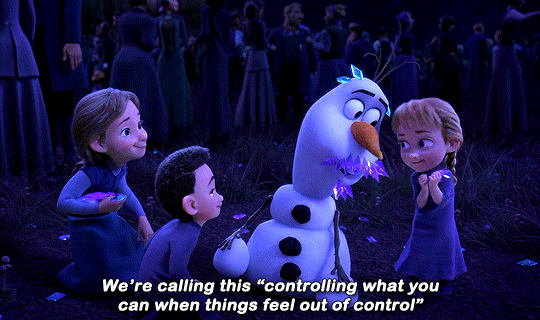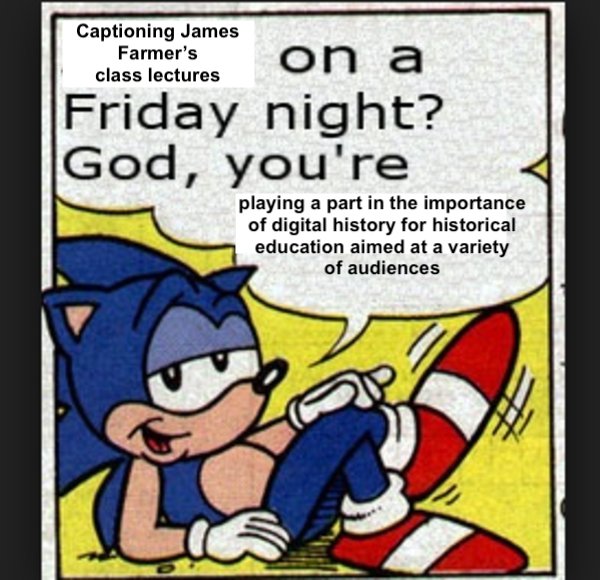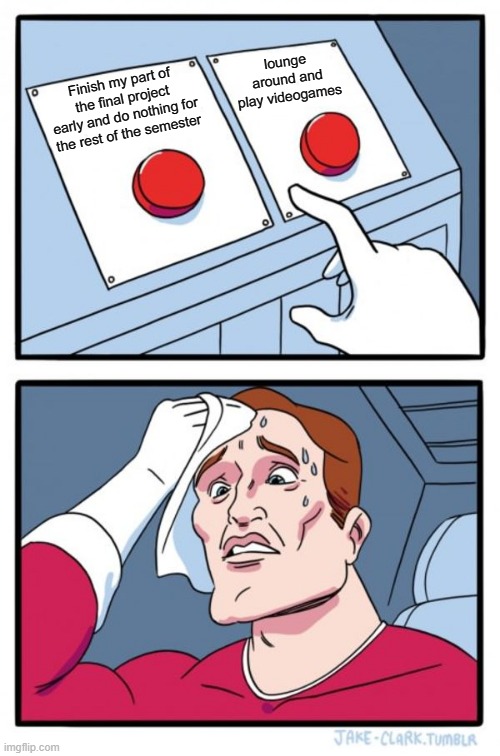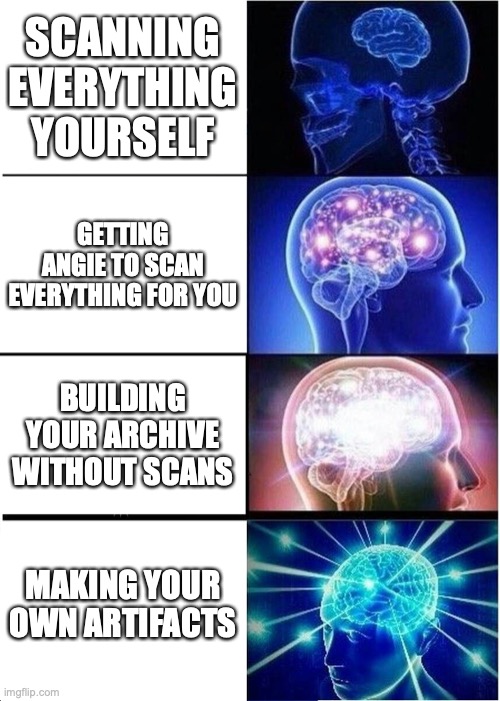This post has been percolating for a while as a series of op-ed pieces and studies announcing that handwriting is better for learning or that laptops or other devices are ineffective or that tech shouldn’t be used in the classroom continue to emerge. I know I’ll get push back about this response, but I’ve needed to sit down and write this for a while now (and it’s easier to have these responses collected together so I can point to them later when these studies and think-pieces continue to emerge). [Apologies for the listicle approach to this post.]
1) Those studies about the wonders of handwriting all suffer from the same set of flaws, namely, a) that they don’t actually work with students who have been taught to use their laptops or devices for taking notes. That is, they all hand students devices and tell them to take notes in the same way they would in written form. In some cases those devices don’t have keyboards; in some cases they don’t provide software tools to use (there are some great ones, but doing it in say, Word, isn’t going to maximize the options digital spaces allow), in some cases the devices are not ones the students use themselves and with which they are comfortable. And b) the studies are almost always focused on learning in large lecture classes or classes in which the assessment of success is performance on a standardized (typically multiple-choice) test, not in the ways that many, many classes operate, and not a measure that many of us use in our own classes. And c) they don’t actually attempt to integrate the devices into the classes in question, a point that Kevin Gannon makes in his excellent post on the subject. [It’s possible I have missed one of these studies that actually addresses all of these things and builds in training for students (and faculty) in integrating devices, or maybe works with a population of students that has had access to a robust, integrated (not nominal) 1:1 laptop program for an extended period of time before the study. If I have missed it, I’m sure someone will let me know.]
2) Banning laptops is going to be a big problem when increasingly you have students like those in my local middle school who are exclusively using laptops in all of their classes to great effect and success. More and more students in K-12 are going to be doing that and a ban will be telling at least some students who are used to taking notes that way (who are actually BETTER at taking notes that way), that they can’t use the tools for which they have developed a process.
3) Banning laptops is also going to be a problem because of the trend toward digitized sources: more and more campus bookstores are offering readings and interactive activities in digital form, sometimes because it’s cheaper, but often because it’s easier for them to manage, and because some students want them in that form. Some texts are ONLY being offered in digital form going forward, and many of the ancillary materials publishers are offering only work in digital form. Plus, increasingly faculty (like me, but many others) are assigning readings that are only online or in JSTOR or other online collections. That’s both because of access, but also because of economic fairness. And then, I want them to have copies of the readings with them and it’s not economically or ecologically fair to ask them to print those copies out and bring them with them to class. [In fact, having students collectively or individually annotate class readings with a tool such as Hypothes.is is a powerful way to improve classroom discussion that would be much more difficult without devices.]
4) Let’s be honest with ourselves and acknowledge that banning technology from our classrooms does not help with the general perception in the public that universities, faculty, and the education we offer is not relevant or adaptable to the modern age. [There are obviously many other reasons we seem to be losing this argument about the value of traditional education that have nothing to do with the laptop ban discussion, but my point here is simply that blanket bans on technology do not help the larger perception of academics. I won’t use the L-word, but you know that others do when they see op-eds from teachers about banning tech from classrooms.]
5) I’ve seen faculty suggest that laptop bans just results in students using smart phones more, even when there is a ban on that as well. So then someone suggests (usually jokingly, sometimes not) jamming cell phones. Jamming cell phones violates federal law, so, um, good luck with that.
6) On the point of incorporating these devices into our pedagogy: I want students to be able to integrate the wide array of other sources available to them with what they are learning in my class, and I often ask them to go out and find good sources to answer questions that emerge during class lecture, discussion, and group work. In other words, I work to integrate those tools and their connections to that larger array of information into the class. [Admittedly, it also means that sometimes students will say, “but this other source says something different.” That’s a terrific learning opportunity for us to talk as a class about sources, interpretation, and authority.]
6a) We should be working with students to meaningfully incorporate these devices into their learning. I have no doubt that adding devices that students use in a wide variety of non-scholarly ways outside of class without attempts to integrate them into classes or to teach students to use those devices in academic ways risks ineffective uses of them. I have plenty of conversations with students about how to take notes already. Most of the time their problem isn’t which device (pencil, laptop, phone, quill) they use to take those notes, but how to take them and how to use them to learn based on their own experiences, learning styles, and discipline.
6b) Incorporating devices into teaching will require faculty training and support. I suspect that some (though certainly not all) of the support for these bans stems from the fact that many faculty don’t feel confident in using technology broadly and in particular for academic purposes (for note-taking, for social media, for research and analysis, for blogging, etc.) themselves and so don’t feel confident in having their students use those tools in and out of class. [One answer to that at UMW is our Division of Teaching and Learning Technologies, our Center for Teaching Excellence and Innovation, and our student-centered Digital Knowledge Center, as well as the week-long Digital Pedagogy Lab institute. But there are more and more options out there to get faculty members the development they need to become more comfortable with digitally enabled pedagogy.]
7) Other critiques of laptop/device bans include: accessibility issues for studies with accommodations, the argument that bans are more about professors’ egos, the notion that bans demonstrate an inflexibility of approach, and the point that other distractions exist too.
8) Caveat: It’s the blanket ban with which I have such issues. I don’t have a problem with faculty asking students at certain points to close their laptops or put away their devices because the type of engagement at that moment is changing.
9) Caveat #2: When there are devices in the classroom, especially larger ones, a few students will use them in ways that will be distracting. I’m not opposed to strategies or explicit conversations about reducing that problem. It’s the throwing-the-baby-out-with-the-bathwater approach of blanket bans that are the issue here.
10) Finally, having conversations with students about how they use devices more generally and laptops in particular for academic success is important, as well as how best to take notes. I do it with students in my First-Year Seminar in detail, and in other classes in general. My school is working to develop these practices more generally and to support faculty as they incorporate technology into their classes.
Encouraging good learning practices among students (and faculty) is a terrific thing to do. I’m just not convinced that entirely banning one set of those practices and the tools used to engage in them is the way to get either group to develop those practices more generally.
[Thanks to Sue Fernsebner for pointing out the appropriateness of this discussion in the wake of the many pieces reflecting on Seymour Papert‘s life and work.]
 From
From 








 I found this meme on Facebook but DIY’d it to say “virtually.” That way, it matches the Zoom Experience.
I found this meme on Facebook but DIY’d it to say “virtually.” That way, it matches the Zoom Experience.




